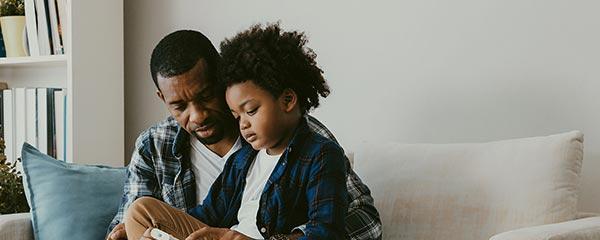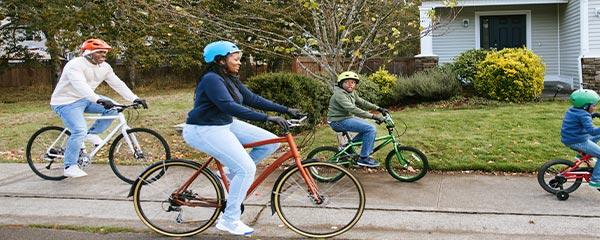Story Highlights
- Cultural books, toys influence childcare/school selections of Black parents
- Four in 10 consider the race of the children and the care providers or teachers
- One in six say their child has been excluded or punished more harshly
WASHINGTON, D.C. -- Two in three Black parents take cultural or racial representation into account when choosing their child’s school or childcare facility. But the Equity Research Action Coalition at the University of North Carolina’s Frank Porter Graham Child Development Institute and the Gallup Center on Black Voices find that regardless of whether they consider these factors in their decision-making, one in five Black parents report that their child has been treated unfairly in some way because of their race.
Availability of Cultural Books, Toys a Key Factor for Parents of Black Kids
When they selected a school or childcare facility for their child, a majority of Black parents (56%) say that having cultural books or toys at the childcare or school was a factor in their decision. Four in 10 say the race of the childcare providers or teachers (40%) and the race of the other children at the childcare facility (41%) were factors in their decision-making process.
Altogether, two in three Black parents (67%) have taken at least one of these factors into account when selecting a childcare facility.
The availability of cultural books and toys and the race of care providers is of greater importance to Black parents in lower- and middle-income households than it is to those in higher-income households. The income gaps are wider for evaluating cultural representation in school materials and the race of teachers than they are for taking the race of other children into account.
Harsher Punishment, Exclusion Reported by One in Six Black Parents
Black parents broadly view their child’s school or childcare facility as welcoming (87%) and diverse (83%).
Still, about one in six Black parents agree with the statement that their “child has been excluded from events, groups, activities at school, childcare or in the community due to their race” (17%), or that their “child has been punished more harshly than others” for the same reason (18%).
One in five Black parents (20%) say their child has been mistreated in at least one of the two ways.
Additionally, no meaningful difference exists in reports of their child’s mistreatment between parents who reported taking at least one cultural or racial representation factor into account when selecting a school or childcare facility and parents who did not take any of the factors into account. This could be related to the extent of racial problems in different communities, compelling some parents to focus more on these factors to begin with. Also, some of the mistreatment may be occurring outside the school or childcare settings.
As other research has found, children who are socioeconomically disadvantaged experience higher rates of punishment -- such as suspensions and expulsions -- than more advantaged children. However, even when controlling for socioeconomic factors, Black children are punished more severely.
Among the Black parents studied, socioeconomic factors play a major role in reports of unfair treatment.
Among those living in households that earn $100,000 or more per year, relatively few (6%) agree that their children have been punished more harshly than others due to their race. But among Black parents living in households earning $40,000 to $99,999 (20%) or less than $40,000 (19%), about one in five parents agree that their child has received disproportionately harsh punishment.
A similar pattern can be found in reports of exclusion from school or community events. While 7% of Black parents in higher-earning households agree that their child has been excluded because of their race, rates of agreement are higher among middle- (15%) and lower-income households (22%).
Additionally, Black parents who have a four-year degree are less likely than Black parents who do not have a four-year degree to agree that their child has been punished more harshly because of their race (8% vs. 21%, respectively) and that their child has been excluded (7% vs. 21%, respectively).
Black parents who are employed full time are also less likely than Black parents who are not employed full time to agree that their child has been punished more harshly because of their race (14% vs. 25%, respectively) and that their child has been excluded from activities (11% vs. 28%, respectively).
Bottom Line
Black parents broadly view their children’s care facility or school to be diverse and welcoming -- perhaps as a result of their own vetting, because many consider the race of the care providers and children, and most consider the cultural items available, when selecting where to send their kids.
These considerations don’t fully safeguard their children against race-related mistreatment -- but perhaps are indicators Black parents look at when trying to prevent such situations. This research effort finds, however, that parents who consider these factors when selecting schools or childcare programs are no more nor less likely to report that their children have experiences of mistreatment than parents who did not consider such factors when finding care.
To stay up to date with the latest Gallup News insights and updates, follow us on X @Gallup.
Subscribe to receive email updates on Gallup's latest insights and historical findings on the experiences of Black Americans. Access the latest from the Gallup Center on Black Voices.
Learn more about how the Gallup Panel works.




